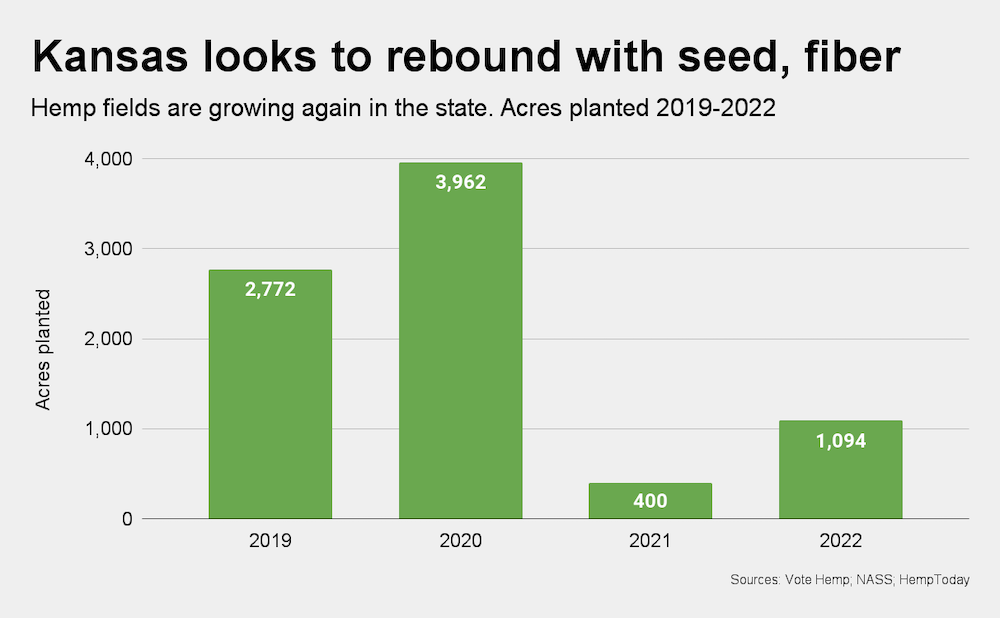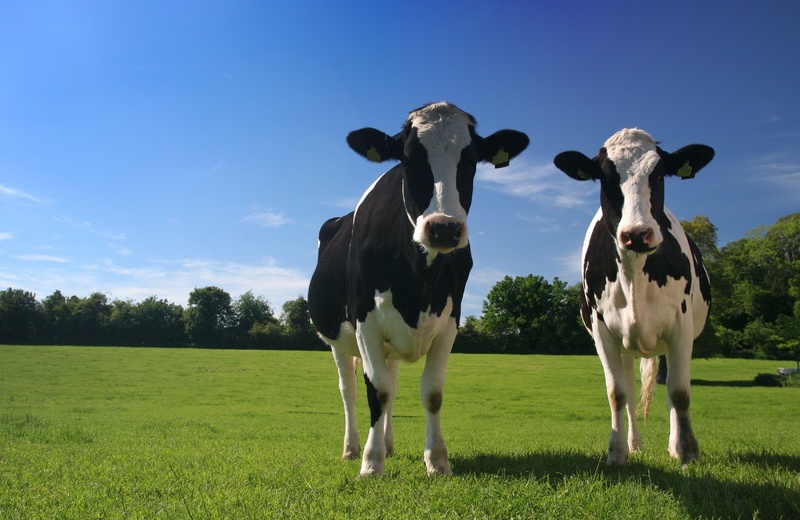State officials in Kansas are pushing back against a proposed law that would allow hemp fiber, grain and seeds to be used as food for pets, and feed for poultry and livestock.
While proponents are pushing the measure as a way to improve farmers’ fortunes with a “new” crop, the state’s Department of Agriculture and the Kansas Bureau of Investigation (KBI) say it’s not a good idea due to safety and security concerns.
In addition to clearing a path for feed, the proposed measure, HB 2168, would lower licensing and registration costs for hemp producers, who are required to pay various fees that can add up to more than $1,200 per year, according to the Kansas Department of Agriculture website. HB 2168 would also extend the deadlines for licensing and registration, and exempt processors from fingerprinting and background checks.
Better rules needed
“If we want Kansans to have an opportunity to expand an industry, if we want Kansans to try new types of crops and new innovations, then we need to really look at what types of regulatory environments we have,” Rep. Kristey Williams, a Republican who co-sponsored the proposed hemp bill, said in a House Agriculture and Natural Resources Committee hearing last week.
Kansas Deputy Secretary of Agriculture Kelsey Olson said she opposes the measure because research into the health impacts of hemp feed on animals and on humans who consume products made from animals is scant. A U.S. Department of Agriculture-funded study conducted by researchers at Kansas State University reported one year ago that feeding cattle industrial hemp may have beneficial effects but concluded that more research is needed.
Texas agriculture officials last week approved hempseed-derived feed for chickens and horses, and authorized the state feed agency to set regulations for such products. Other states are also advocating for various hemp component parts as feed.
Official fears
“HB 2168 would reduce KDA’s ability to administer the existing industrial hemp program and could place the large economic drivers of the meat and dairy industry in jeopardy by reducing the ability to sell our products in interstate commerce,” Olson said.
KBI Executive Officer Robert Jacobs defended mandatory fingerprinting and background checks for hemp license applicants.
“We still need to identify for the integrity of the program, who should not even be in this program at all,” Jacobs said. “Do they already have a felony that would prohibit them from being involved with tetrahydrocannabinol?”
Stakeholders and other lawmakers hinted that some current restrictions are rooted in stereotypes that conflate hemp with marijuana.
The old stereotypes
“It’s straight-up reefer madness in there,” Sarah Stephens, president of the Kansas Hemp Consortium and CEO of Midwest Hemp Technology, a Witchita-based fiber and grain processor, said of the hearing.
“If you grow corn, you can make moonshine out of it,” said Rep. Tobias Schlingensiepen, a Topeka Democrat. “So why aren’t we fingerprinting corn growers? This all just sounds really paranoid to me.”
Looking to rebound
Cultivating and processing industrial hemp in Kansas has been legal since the Farm Bill legalized the crop federally in 2018. After a state program was established in 2019, 2,772 acres of hemp were planted that year, primarily for flowers to go into CBD production.
But as a crash in the CBD biomass market took hold in 2019, hemp plantings plunged to just 500 acres in 2021, according to figures from the National Agricultural Statistical Service. Acres rebounded slightly in 2022 as hemp stakeholders turned their attention to grain and fiber production.


